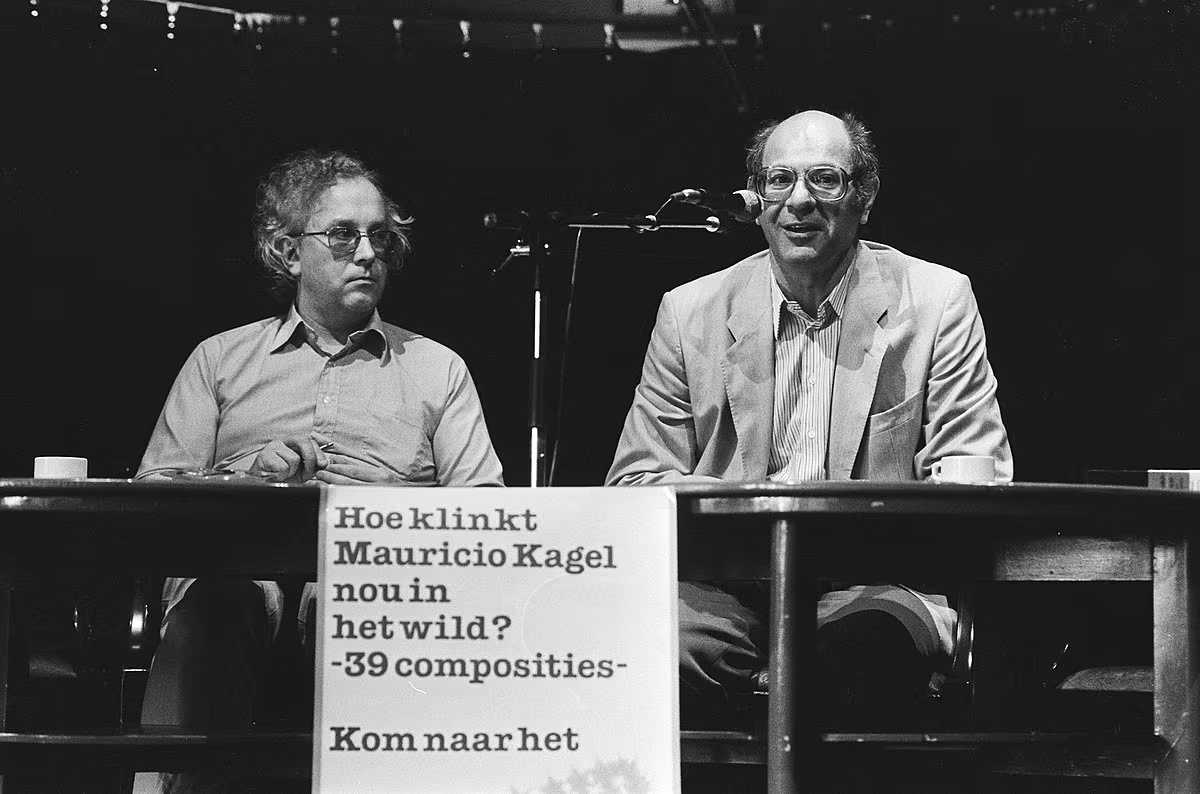Remembering Frans de Ruiter
Founder of Utrecht Early Music Festival and former president of the European Festivals Association, has died aged 79.

Frans de Ruiter, a giant of the Early Music movement in the Netherlands who became hugely influential in the wider musical world, died on Wednesday, 16 July 2025, after many months of illness. The European Festivals Association published the following tribute.
Frans de Ruiter was president of the European Festivals Association (EFA) from 1989 until 2004. As Director of the Holland Festival, and founder of Utrecht Oude Muziek (Early Music) Festival, he was an active member since 1977, when he joined the General Assembly, and soon after the Executive Committee under the Presidency of Denis de Rougemont, founding president of EFA.
Frans was born in 1946, and at the time of his death was Emeritus Professor and former Director at the Academy of Creative and Performing Arts (ACPA), the research institute he founded within the Faculty of Humanities at the University of Leiden. He had been the leading figure in joining together the Royal Conservatoire in The Hague, and the University of Leiden.
Frans studied musicology at Utrecht University, and harpsichord at the Conservatory of the Muzieklyceum Society, in Amsterdam. In the following years, he became director of the Holland Festival (1977–1985), was co-founder and director (1982–1994) of the Utrecht Early Music Festival, one of the world's most prestigious festivals in the genre. He was Director of the Royal Conservatoire from 1985 until 2006 and held several other academic positions.

Frans was also President of the UNESCO-associated International Music Council in Paris (1997–2001 and 2009–2013), and President of the European House for Culture, an initiative of EFA, in Brussels. He played a crucial role in the life of many of Europe's cultural networks, whether in an official capacity or just as an encouraging voice.
In the last years, Frans was working on a book about his experience of 55 years in the cultural sector. Two short chapters have been published already in EFA’s Eye-to-Eye Magazine. Throughout his career, Frans was an ardent defender of the place of the arts in public life, continually arguing that support for the arts was an important duty of government. He challenged all those, whether in city, national, or European politics, who regard the arts, and especially music, as peripheral to their responsibilities.
A tireless worker, who never came to a meeting without mastering the details, he formed and guided organisations with engagement, passion and wit. He thought as an artist, but was also a brilliant administrator – a rare combination. Thanks to his intelligence and sensitivity, he inspired artists, invigorated festivals, and had an enormous influence on the progress of students and colleagues alike. He was a champion without whom the civilised world will be much poorer.
Simon Mundy, Continuo Connect's Writer-in-Residence, adds:
Although Frans did perform and compose, his influence off the concert platform was far bigger. His two periods as President (and others on its board) of the International Music Council (IMC) meant that he devoted years to developing music worldwide. In the Netherlands, he was a founder of Kunsten ’92, the arts advocacy organisation that was the equivalent of the National Campaign for the Arts that I was then directing in the UK. At the Royal Conservatoire, he led the way in bringing Early and contemporary music together. Many musicians who are part of the Continuo Foundation community will have benefited. In 1995, he chose me as his successor as co-director of Utrecht Oude Muziek, by then not just the biggest Early Music festival, but also a publishing and recording company and a promoter of concerts year-round throughout the Netherlands. Frans and I continued to work together on European projects for all the years after. Most recently, he asked me to be a founding member of the European House for Culture in Brussels, which will soon find a new home in the redeveloped Kai Theatre.
My dearest memory, though, was when he asked me earlier this century, with two days notice, to replace the ill Edward Said, the great Palestinian writer who worked with Daniel Barenboim starting the West-Eastern Divan Orchestra, to give the keynote speech at the congress of the IMC. Because Jordan held the chairmanship, the meeting was in the astonishing ancient surroundings of Petra. I was driven through the desert as the moon rose and arrived late at night, well after the congress had started. The days following were a tide of concerts under the stars, serious discussions on the place of music in building peace, and awe-inspiring visits to the archaeology. Through all of this, Frans steered us with consummate diplomacy.

